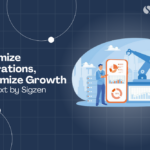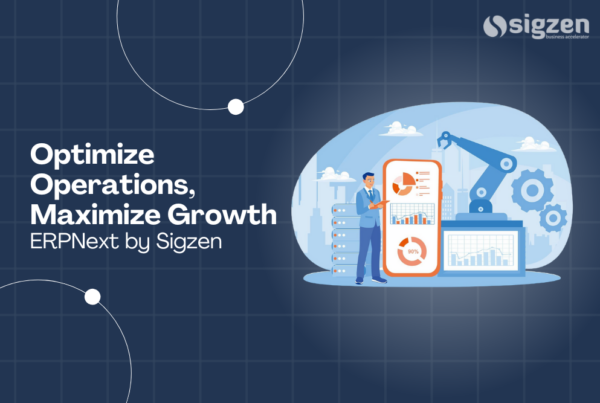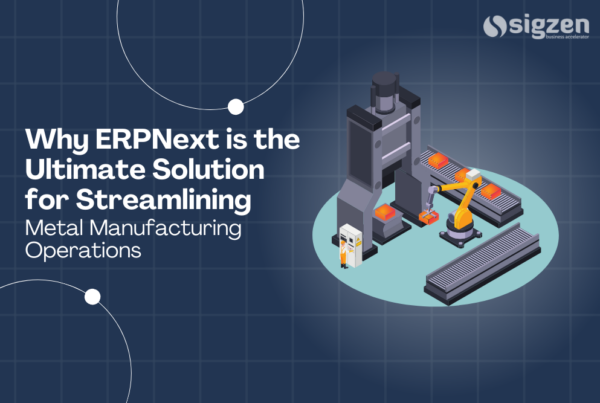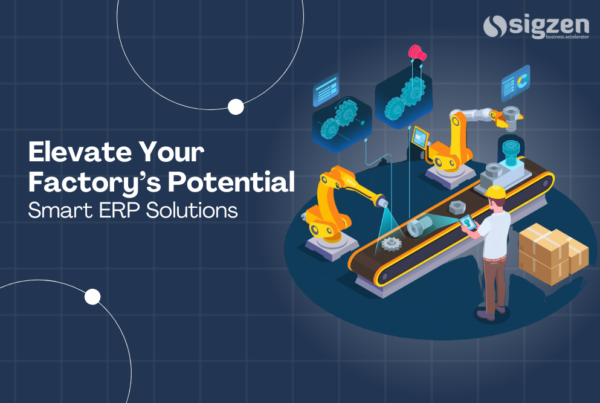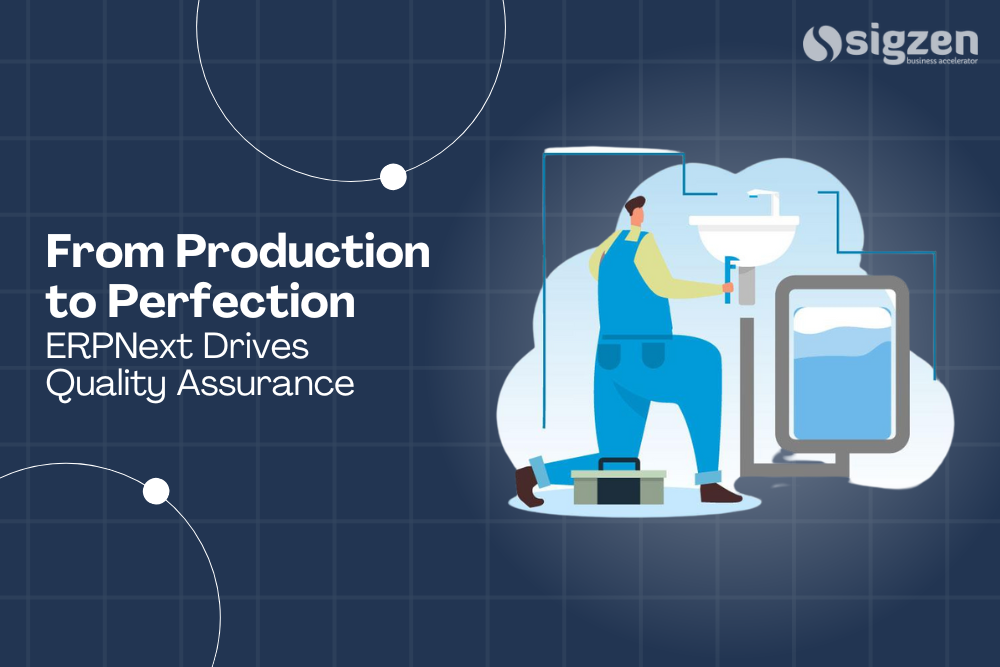
Introduction: Elevating Faucets Manufacturing with ERP Solutions
In faucets manufacturing, precision and quality are everything. Customers demand durable, aesthetically pleasing products that perform flawlessly. However, maintaining consistent quality while scaling production is no easy task. Issues like defective products, inefficient workflows, and regulatory non-compliance can derail operations and damage brand reputation.
This is where ERP for Faucets Manufacturing, particularly ERPNext by Sigzen, proves indispensable. By integrating quality control for faucets manufacturing with production and inventory management, ERPNext empowers manufacturers to deliver superior products efficiently. This article explores how ERPNext enhances quality control, optimizes manufacturing workflows, and supports the evolving demands of faucets manufacturers.
Challenges in Quality Control for Faucets Manufacturing
1. Inconsistent Product Quality
Variability in raw materials, manufacturing processes, or inspections can lead to inconsistent product quality, which frustrates customers and increases returns.
2. Manual Quality Assurance
Relying on manual processes for quality checks is time-consuming and prone to errors, leading to undetected defects.
3. Regulatory Compliance
Faucet manufacturers must comply with strict regulations regarding material safety, durability, and environmental standards.
4. Lack of Traceability
Without robust tracking systems, identifying and addressing the root cause of defects becomes challenging.
5. Inefficient Communication
Disconnected systems for production, quality control, and inventory management hinder effective communication and coordination across teams.
How ERPNext Enhances Quality Control for Faucets Manufacturing
1. Automated Quality Inspections
ERPNext streamlines quality assurance by automating inspection processes. Key features include:
- Customizable Quality Parameters: Set inspection criteria for raw materials, in-process goods, and finished products.
- Automated Quality Checks: Perform inspections at predefined stages of production, reducing manual oversight.
- Defect Management: Identify, categorize, and document defects in real-time for faster resolution.
Learn more about ERPNext’s quality management capabilities.
2. Real-Time Data and Traceability
ERPNext offers complete traceability across the supply chain, ensuring that manufacturers can:
- Track Batch Records: Monitor the journey of every batch from raw material procurement to delivery.
- Identify Root Causes: Quickly trace defects back to specific production stages or suppliers.
- Enhance Transparency: Share accurate data with stakeholders, improving trust and accountability.
3. Regulatory Compliance
Meeting global and local regulatory standards is critical for faucet manufacturers. ERPNext supports compliance by:
- Automating Documentation: Generate audit-ready reports for regulatory inspections.
- Tracking Material Certifications: Ensure raw materials meet safety and environmental standards.
- Maintaining Audit Trails: Record every quality-related action for easy reference during audits.
Explore ERPNext’s features for compliance.
4. Integration with Manufacturing Processes
ERPNext integrates seamlessly with production workflows to ensure that quality control is embedded into every step:
- Inline Quality Checks: Conduct inspections during production to catch defects early.
- Process Optimization: Use real-time data to identify and eliminate inefficiencies in workflows.
- Production Planning: Allocate resources and schedule production based on quality benchmarks.
Discover ERPNext’s manufacturing capabilities.
5. Advanced Reporting and Analytics
With ERPNext, manufacturers can access actionable insights into quality and production performance:
- Defect Rate Analysis: Monitor defect trends to identify areas for improvement.
- Customizable Dashboards: Track KPIs like defect rates, inspection times, and compliance scores.
- Predictive Analytics: Use historical data to forecast and mitigate quality issues.
Key Features of ERP for Faucets Manufacturing
1. Quality Control Modules
Automate inspections, manage defects, and ensure compliance with robust quality control tools.
2. Inventory Management
Synchronize inventory levels with production needs to reduce waste and ensure material availability.
3. Batch and Lot Tracking
Track every batch of raw materials and finished products for complete traceability.
4. Workflow Automation
Eliminate manual tasks by automating production schedules, resource allocation, and quality checks.
5. Cloud Accessibility
Access ERP functionalities from anywhere, enabling real-time monitoring and decision-making.
Benefits of ERP for Faucets Manufacturing
1. Improved Product Quality
By integrating quality checks into every stage of production, ERPNext ensures consistent, high-quality products.
2. Faster Issue Resolution
Real-time defect tracking and root cause analysis reduce downtime and prevent recurring problems.
3. Enhanced Compliance
Automated documentation and audit trails simplify adherence to regulatory standards.
4. Reduced Costs
Streamlined workflows and optimized inventory management minimize waste and operational expenses.
5. Increased Customer Satisfaction
Delivering reliable, defect-free products enhances customer trust and drives repeat business.
Real-World Impact: Case Study of ERPNext Implementation
Challenge: A faucets manufacturer faced challenges with inconsistent product quality, delayed inspections, and high defect rates.
Solution: By implementing ERPNext, the company achieved:
- 30% reduction in defects through automated quality checks.
- 40% faster inspections with streamlined workflows.
- Enhanced compliance with real-time audit trails and regulatory reporting.
Request a demo from Sigzen to see how ERPNext can transform your manufacturing operations.
Best Practices for Implementing ERP in Faucets Manufacturing
1. Identify Key Objectives
Define your quality control and production goals to ensure the ERP system addresses your specific needs.
2. Train Your Workforce
Provide training sessions to familiarize employees with ERP features and functionalities.
3. Monitor Performance Metrics
Track KPIs like defect rates, inspection times, and compliance scores to measure the ERP system’s impact.
4. Collaborate with Experienced Providers
Partner with experts like Sigzen for seamless ERP implementation and ongoing support.
Common Concerns About ERP Implementation
1. Is ERP Suitable for Small Manufacturers?
Yes, ERP systems like ERPNext are scalable and can be tailored to meet the needs of businesses of all sizes.
2. How Long Does Implementation Take?
The timeline depends on business complexity but typically ranges from a few weeks to a few months with experienced providers.
3. How Secure is ERP Data?
Modern ERP systems employ robust security measures, including encryption and role-based access, to protect sensitive information.
Conclusion: Streamline Quality Control with ERP for Faucets Manufacturing
In the faucets manufacturing industry, quality is non-negotiable. ERP systems like ERPNext offer an all-in-one solution to streamline quality control, enhance production efficiency, and ensure compliance with regulatory standards. By partnering with Sigzen, manufacturers can unlock the full potential of ERPNext to deliver exceptional products, reduce costs, and boost customer satisfaction.
Ready to elevate your faucets manufacturing operations? Request a demo from Sigzen today!
